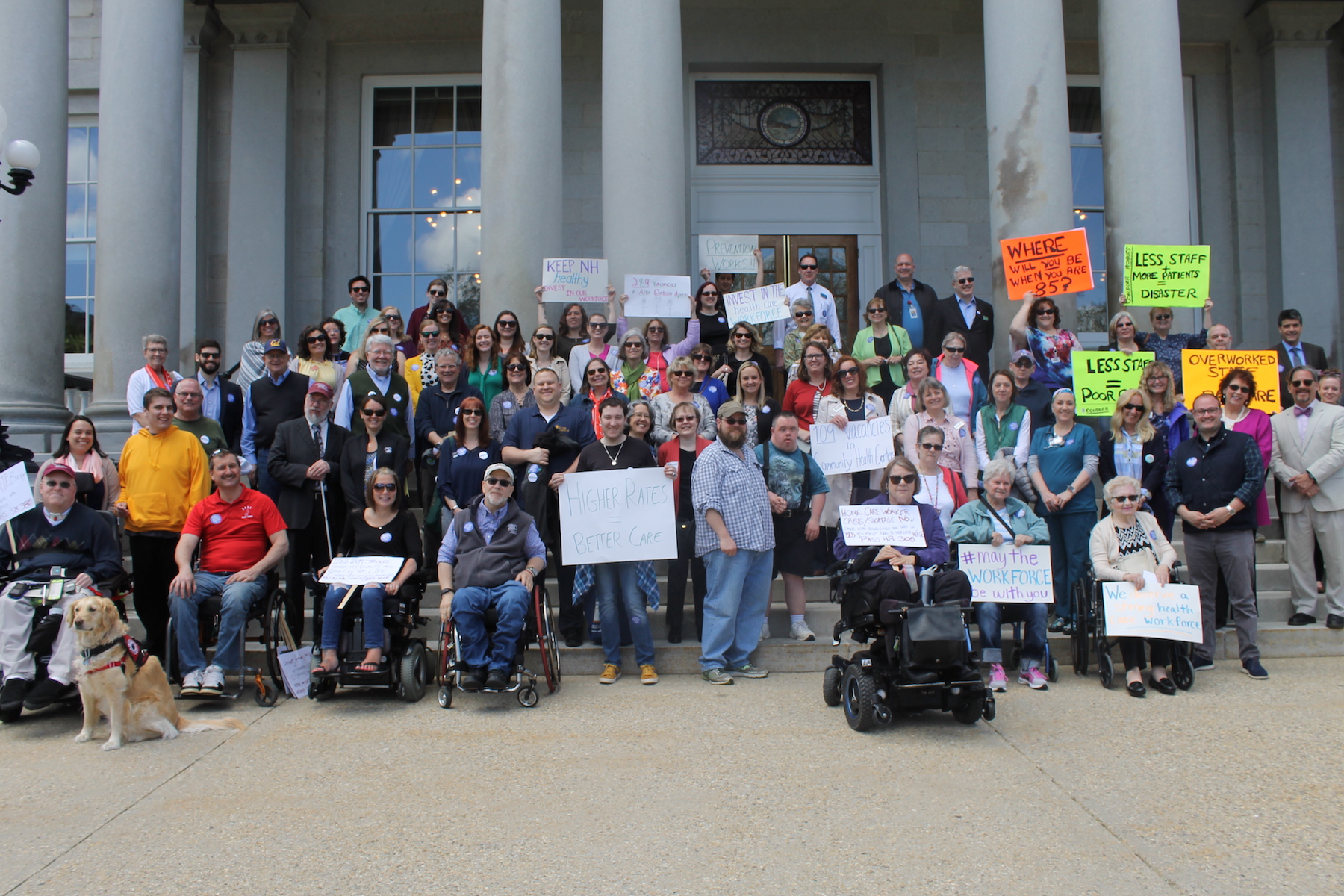
CONCORD, NH – On May 6 nearly 100 health care providers, patients and other advocates rallied at the State House lawn to highlight the need for investments in New Hampshire’s health care workforce to allow Granite Staters access to primary care, mental health, and substance use disorder treatment, among other needed services.
Providers and families joined with Senators Cindy Rosenwald of Nashua and Jeb Bradley of Wolfeboro to encourage Senate budget writers to include in their spending plan the components of Senate Bill 308, which includes such provisions as an increase in Medicaid reimbursement rates and investment in the State Loan Repayment program.
“Our state does not train enough health care workers to meet the existing demand for workforce. We compete with other states to attract, recruit, and retain our health care workforce,” said Stephanie Pagliuca, Director of Recruitment at Bi-State Primary Care Association, which represents 15 community health centers throughout the state. “SB 308 will put New Hampshire on a new path by providing comprehensive, system-wide investments and allow us to meet our current and future health care needs.”
Throughout New Hampshire, there are more than 2,000 unfilled positions, including in hospitals, community health centers, community mental health centers, nursing homes, and substance use treatment providers, as well as other health care settings.
“Our workforce needs to be nurtured and trained and we need to be able to pay our highly qualified and dedicated workers a decent living wage so they can afford to live in our communities,” said Peter Evers, CEO of Riverbend Community Health Center in Concord. “If we continue to pay below the going rate we run the risk of having opportunities to build new programs and have no one to work in them.
Families and advocates spoke about the impact the workforce shortage has on their ability to access care that they need.
Nancy and Megan Kelleher, of Goffstown, spoke of a need for higher reimbursement rates for home health care workers to support Megan, who needs care 24 hours a day, and allow both Megan and Nancy to be contributing members of society.
“We have been without support staff for two months. It is impossible for me to find adequate staff for such little pay,” said Nancy Kelleher, an employee of Community Bridges in Concord, which serves individuals and families with disabilities.
Advocates say that including the provisions of SB 308 in the budget will create both short- and long-term solutions for our health care workforce shortage.







